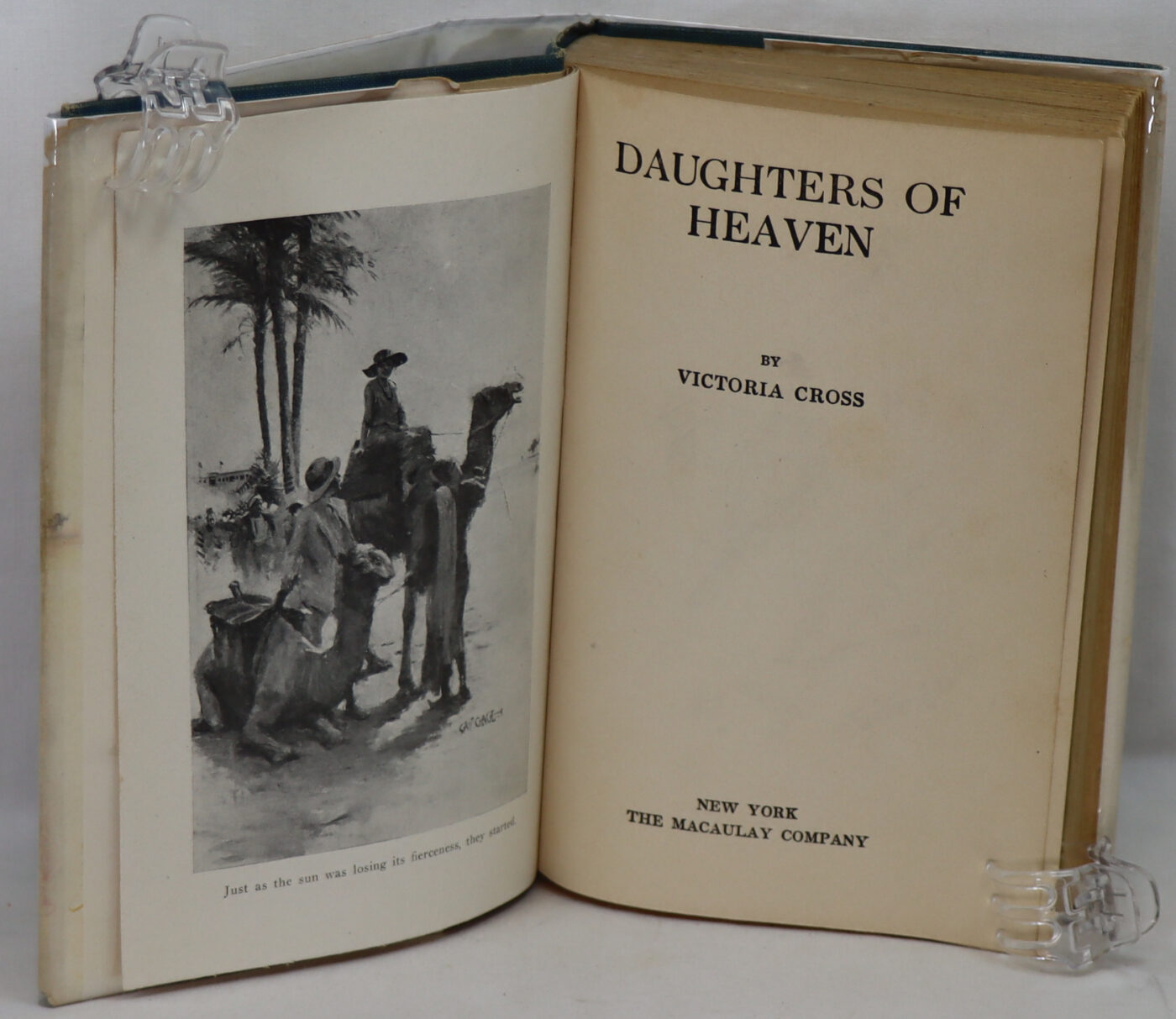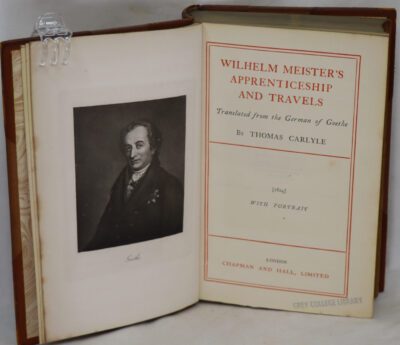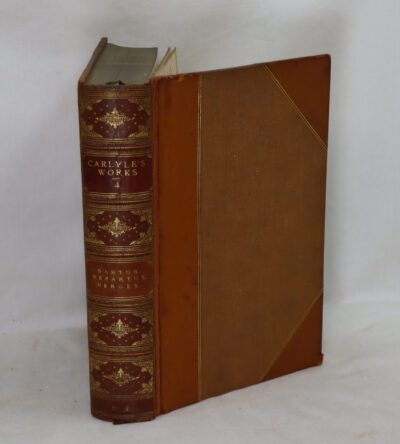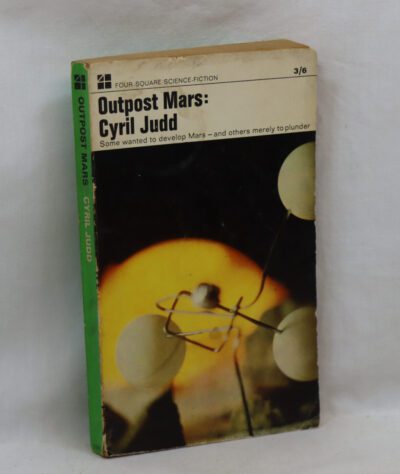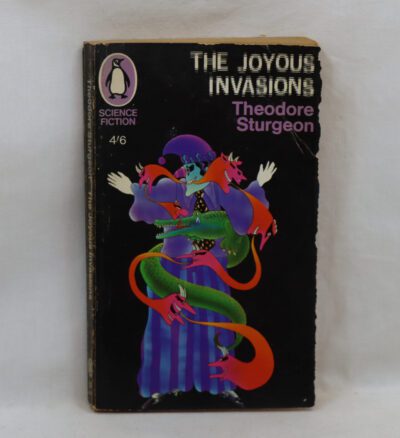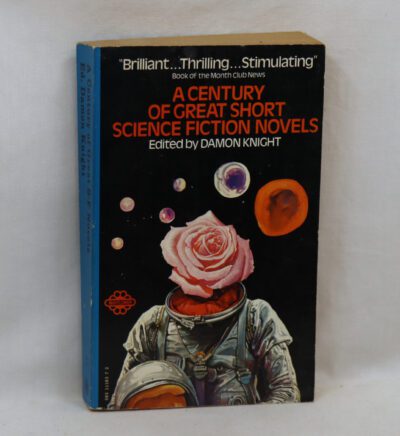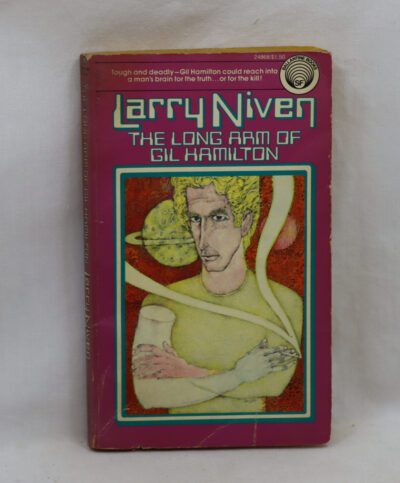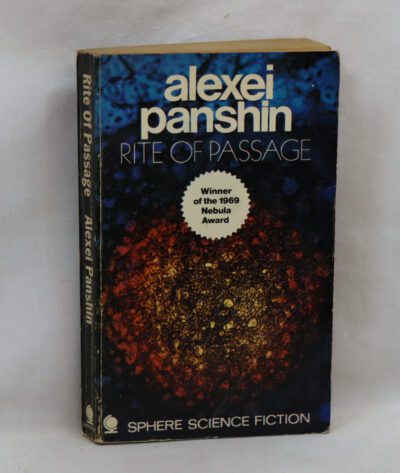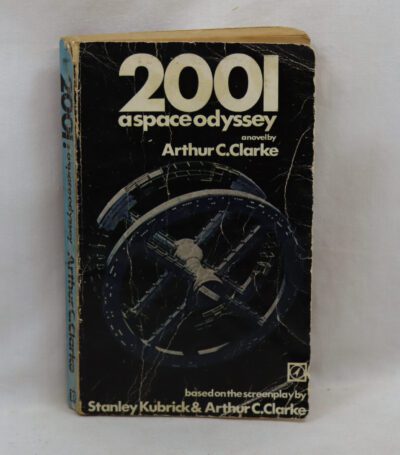Daughters of Heaven.
By Victoria Cross
Printed: 1921
Publisher: The Mcaulay Co. New York
| Dimensions | 13 × 19 × 3 cm |
|---|---|
| Language |
Language: English
Size (cminches): 13 x 19 x 3
Condition: Good (See explanation of ratings)
Item information
Description
In the original dust jacket. Blue cloth binding with tan title on the spine and front board.
We provide an in-depth photographic presentation of this item to stimulate your feeling and touch. More traditional book descriptions are immediately available
- Note: This book carries a £5.00 discount to those that subscribe to the F.B.A. mailing list
For book conditions, please view the photographs. Erotica. First published in 1920. This book is a collection of short stories that explore the nature of love, passion, and desire. Set against the backdrop of the early 20th century, the author delves into the complexities of human relationships, the sacrifices people make for love, and the destructive power of unrequited passion. Through a series of vivid and emotionally charged tales, the author examines the fine line between love and obsession, the allure of forbidden desires, and the devastating consequences of infidelity. These stories offer a profound and nuanced exploration of the human heart, showcasing the author’s keen understanding of the complexities of human nature. In ‘Daughters of Heaven’, Victoria Cross tells the story of a young woman who enters a convent with hopes of finding solace and a sense of purpose. Throughout the book, we are given glimpses into the lives of the other nuns at the convent, and the struggles they face as they pursue their faith. Cross’s writing is poignant and insightful, making this book a must-read for anyone interested in Catholicism, or simply interested in reading an emotionally resonant story.
Annie Sophie Cory (1 October 1868 – 2 August 1952) was a British author of popular, racy, exotic New Woman novels under the pseudonyms Victoria Cross(e),[Vivian Cory and V.C. Griffin. Annie Sophie Cory was the youngest of three daughters born to Colonel Arthur Cory and his wife Fanny Elizabeth Griffin. Her older sisters were the poet Adela Florence Nicolson and the editor Isabell Tate, who edited the Sind Gazette in India. She was born in Rawalpindi, Punjab, and was also baptized there on 27 October 1868. Her father was employed in the British army at Lahore, where he was editor of the Lahore arm of The Civil and Military Gazette. Despite her parents’ sojourn in India, they eventually returned to England, having maintained ties to their native country. Cory attended London University at nineteen years old in 1888, but did not graduate. In the 1891 England Census, Cory is listed as residing at 35 Tavistock Crescent, Paddington, London with her mother. After Arthur’s death in 1903, Annie traveled extensively over the Continent with her maternal uncle, Heneage McKenzie Griffin, who was the owner of the Seven-Thirty silver mine in Boulder, Colorado and prominently involved in the mining industry as one of its richest entrepreneurs. They lived together from 1916 to 1939, until his death in Italy. Having been bequeathed her uncle’s entire fortune, Cory settled in Monte Carlo to live with female friends. She also had a residence at 8 Via Cantonale Legano, Switzerland. After her death in Milan, Italy, Cory was buried beside her uncle in 1952. She left £87,304 10s 8d in her will. Annie Sophie’s most established pseudonym was Victoria Cross. According to The Bookman, she chose this pseudonym, “because her initials are V.C. and…she is the descendent of a V.C.” (Victoria Cross medal recipient). Themes: Cory’s stories often detail behaviors and desires unusual in the Victorian period such as female cross-dressing, unbridled and unashamed sexual desire, longing for and fear of interracial sexual relationships, and questioning of traditional heterosexual gender roles for men and women. Though her reputation as a writer of New Woman fiction is now more obscure, Cory is remembered chiefly as an author of decadent literature.
The New Woman was a feminist ideal that emerged in the late 19th century and had a profound influence well into the 20th century. In 1894, writer Sarah Grand (1854–1943) used the term “new woman” in an influential article to refer to independent women seeking radical change. In response the English writer Ouida (Maria Louisa Ramé) used the term as the title of a follow-up article. The term was further popularized by British-American writer Henry James, who used it to describe the growth in the number of feminist, educated, independent career women in Europe and the United States.The New Woman pushed the limits set by a male-dominated society. Independence was not simply a matter of the mind; it also involved physical changes in activity and dress, as activities such as bicycling expanded women’s ability to engage with a broader, more active world.
Want to know more about this item?
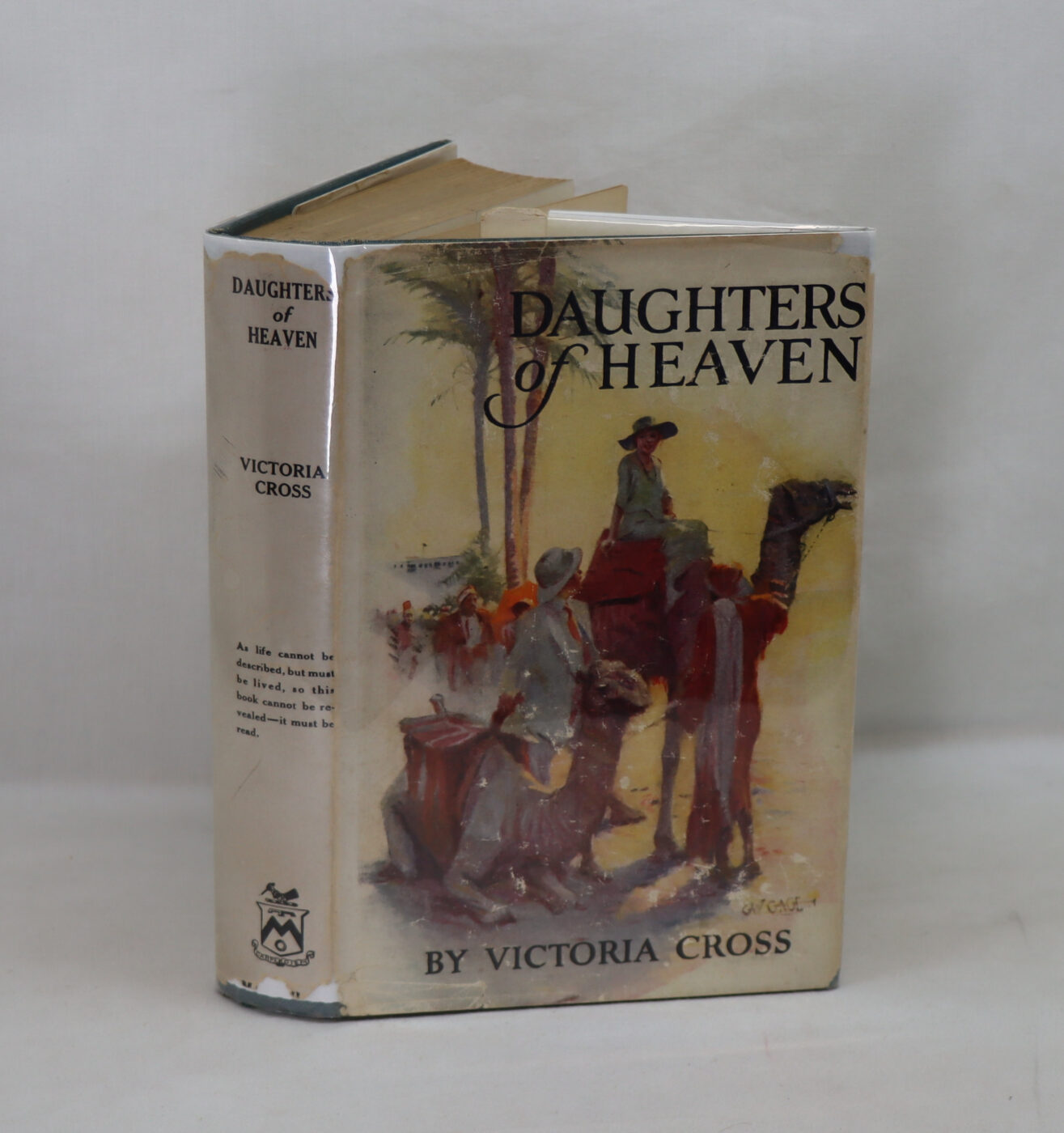
Related products
Share this Page with a friend

